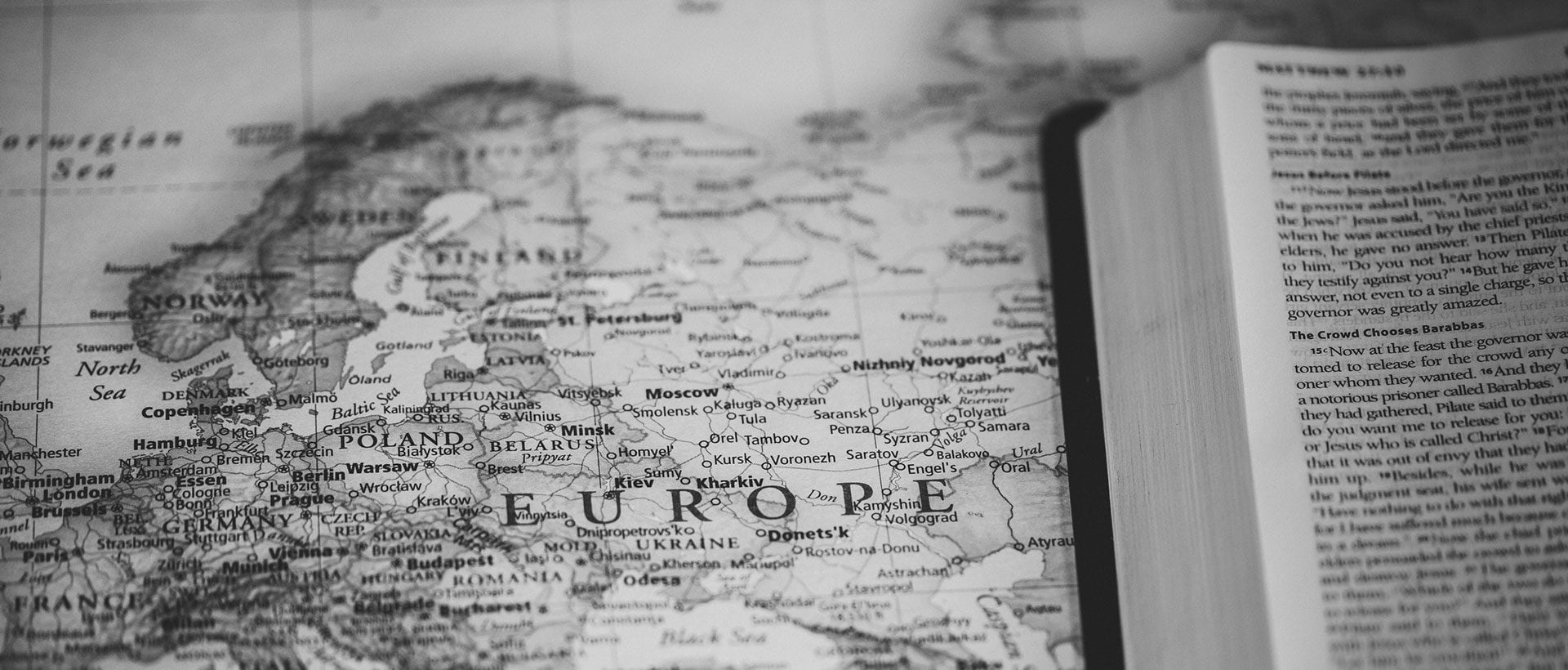The Story: A new survey finds that while most people in Western Europe consider themselves to be Christians, they are less religious than “nones”(i.e., atheists, agnostics, and religiously unaffiliated) are in America.
The Background: Pew Research finds that most adults surveyed in Western Europe still consider themselves to be Christians—even if they seldom go to church or hold orthodox beliefs. (The 15 countries included in the survey: Austria, Belgium, Denmark, Finland, France, Germany, Ireland, Italy, the Netherlands, Norway, Portugal, Spain, Sweden, Switzerland, and the United Kingdom.)
The report distinguishes between “non-practicing Christians” (i.e., people who identify as Christians, but attend church services no more than a few times per year) and “church-attending Christians” (i.e., those who go to religious services at least once a month).
With the exception of Italy, in every Western European country the non-practicing far exceed those who attend church regularly. The biggest gaps were in Finland (9 percent church attending, 68 percent non-practicing) and Sweden (9 percent church attending, 43 percent non-practicing). In most of the countries surveyed, non-practicing Christians also outnumber the religiously unaffiliated (people who identify as atheist, agnostic or “nothing in particular,” sometimes called the “nones”).
Only a quarter of non-practicing Christians (24 percent) believe in God as described in the Bible. About half believe in a higher power (51 percent) while nearly two-in-ten (16 percent) do not believe in God or any type of higher power. Even in Catholic-majority Spain, only about one-in-five non-practicing Christians (21 percent) believes in God as described in the Bible, while six-in-ten say they believe in some other higher power or spiritual force.
According to Pew, abortion, gay marriage, and the role of religion in government are three areas where the attitudes of non-practicing Christians broadly resemble those of religious “nones.” Significant majorities of both non-practicing Christians and “nones” say they think that abortion should be legal in all or most cases and that same-sex marriage should be legal. Most non-practicing Christians, along with the vast majority of “nones,” also say religion should be kept out of government policies.
What It Means: The survey shows that throughout Western Europe, the term “Christian” has become a trans-national cultural identity, rather than a religious identity. While almost all adults in the countries surveyed self-identify as Christians, very few practice the faith with even a modest level of commitment. For example, a median of just 11 percent of adults across Western Europe say that religion is “very important” in their lives. That is a lower percentage than American “nones,” a group who say religion is very important in their lives (13 percent).
As Pew notes, “[B]y some of these standard measures of religious commitment, American “nones” are as religious as—or even more religious than—Christians in several European countries, including France, Germany and the UK.” [Emphasis in original.]
For the purposes of the survey, to be counted as showing a high level of religious commitment, a respondent had to report at least two of four highly observant behaviors or beliefs: (1) attending religious services at least monthly, (2) praying at least daily, (3) believing in God with absolute certainty, or (4) saying that religion is very important to them.
Notice that the standard for “high level” of religious belief can be met by the extremely low standard of simply saying religion is “very important” and that “God definitely exists.” But relatively few Christians in Western Europe even meet this low standard: the median score for “high commitment” is only 16 percent.
In no country surveyed are a majority of Christians highly religious. In only three of the countries do “highly committed” Christians compose close to one-third of the population—the Netherlands (35 percent), Italy (31 percent) and Spain (31 percent)—and only one country is the level more than 40 percent (Portugal, at 43 percent).
A striking example of this low commitment is found in religious giving. Protestants are somewhat more likely than Catholics to give money to their churches (34 percent median, compared with 27 percent among Catholics). But only in two countries, Norway and the Netherlands, do majorities of Christians voluntarily give money to their churches (61 percent and 58 percent, respectively).
But the most depressing—and likely the most causal—data point is in the area of evangelism. In only four of the 15 countries surveyed do more than 10 percent of Christians try to persuade other adults to adopt their religious views (Portugal, 17 percent; Italy, 13 percent; Ireland, 12 percent; and the Netherlands, 11 percent). The median for all countries is a dismal 8 percent.
Jesus told his followers to “go and make disciples of all nations” (Matt. 28:19). Perhaps it’s not surprising that Christianity is dying in the nations where Christ’s disciples fail to obey that command.
